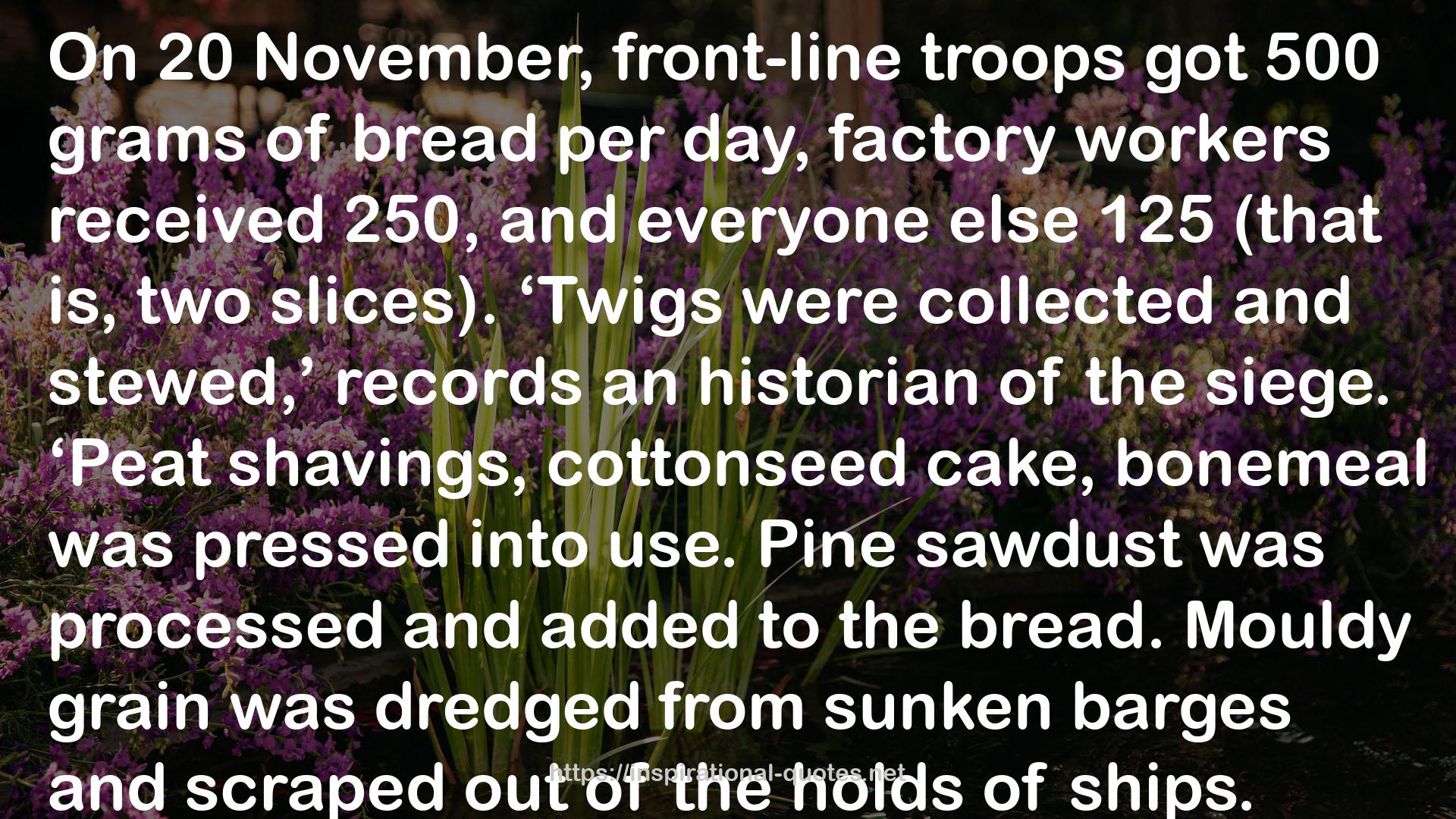" On 20 November, front-line troops got 500 grams of bread per day, factory workers received 250, and everyone else 125 (that is, two slices). ‘Twigs were collected and stewed,’ records an historian of the siege. ‘Peat shavings, cottonseed cake, bonemeal was pressed into use. Pine sawdust was processed and added to the bread. Mouldy grain was dredged from sunken barges and scraped out of the holds of ships. Soon Leningrad bread was containing 10% cottonseed cake that had been processed to remove poisons. Household pets, shoe leather, fir bark and insects were consumed, as was wallpaper paste which was reputed to be made with potato flour. Guinea pigs, white mice and rabbits were saved from vivisection in the city’s laboratories for a more immediately practical fate. ‘Today it is so simple to die,’ wrote one resident, Yelena Skryabina, in her diary. ‘You just begin to lose interest, then you lie on your bed and you never get up again. Yet some people were willing to go to any lengths in order to survive: 226 people were arrested for cannibalism during the siege. ‘Human meat is being sold in the markets,’ concluded one secret NKVD report, ‘while in the cemeteries bodies pile up like carcasses, without coffins. "
― Andrew Roberts , The Storm of War: A New History of the Second World War
